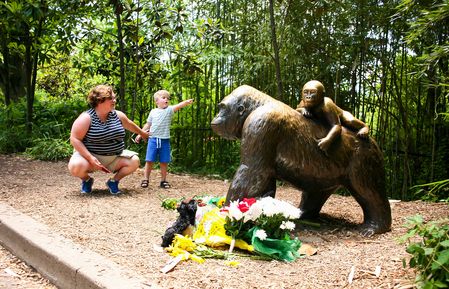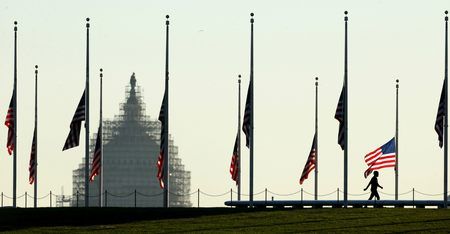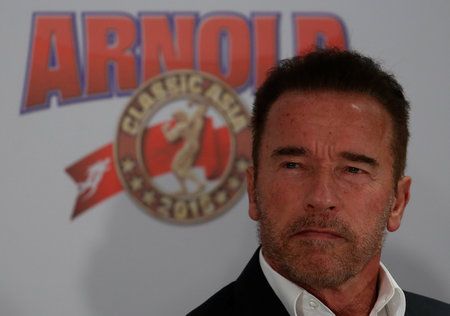Advertisement
Congo lays to rest music and fashion legend Papa Wemba

By Amedee Mwarabu Kiboko
KINSHASA (Reuters) – Hundreds of thousands of mourning fans came out on Wednesday to bid a final farewell to Papa Wemba, the legendary Congolese singer who brought his tumultuous country’s music to a world audience and became a national hero in the process.
Wemba, born Jules Shungu Wembadio Pene Kikumba in Lubefu in what was then the Belgian Congo, collapsed and died on stage while performing at a music festival in Ivory Coast on April 24. He was 67 years old.
A steady stream of mourners filed past his white and gold casket in the three days before Wednesday’s burial as he lay in state at Democratic Republic of Congo’s parliament building in the capital Kinshasa.
And a crowd of tens of thousands packed the streets in front of the Notre Dame du Congo Cathedral where the city’s Catholic archbishop celebrated a funeral mass.
“Papa Wemba has always been my idol. So I’ve just lost my star,” said JB Mpiana, the head of the popular Kinshasa musical group Wenge Musica.
Wemba came of age during the 1960s, a period of post-independence hope in Congo that was quickly dashed by civil war and the murder of Patrice Lumumba, the young nation’s first democratically elected leader.
It was also a period when Congo’s Cuban-influenced rumba ruled the airwaves across an African continent in the midst of an existential transformation.
Wemba would rise to become one of the genre’s masters before turbo-charging it in the 1970s with breakneck drum beats and frantic guitar riffs as part of the Congolese super group Zaïko Langa Langa.
He left after five years to found Viva la Musica, the band he would continue to perform with until his death despite periods of solo work and collaboration with other artists.
“CONTINUE TO BE ELEGANT”
“Papa Wemba was able to make being a musician something valued. He taught us how to dress well, to be elegant, to make ourselves respected in society,” said Ruinga Keps, a Congolese musician known by the stage name Brigade.
Already a household name in his home country, then known as Zaire, Wemba met Peter Gabriel in the early 1990s as the British singer was beginning to promote and produce artists from around the globe as part of the burgeoning world music movement.
He would remain among Africa’s most popular artists and continue to tour internationally until his death.
At home his status as the godfather of Congolese music was perhaps only rivalled by his status as a fashion icon in a nation where dress and appearance have long been a point of pride.
Wemba was known as the Pope of Sape, a movement of fashion dandies deriving its name from the French acronym for the Society of Ambiance-Makers and Elegant People.
Wemba sang the praises of the sapeurs, whose impeccable appearance and penchant for designer label garments are a stark contrast to the gritty, impoverished environment in which they often exist.
“We came to know the sape thanks to Papa Wemba. And believe me, even with his death, we are going to continue to be elegant,” said Vieux Malala, an 81-year-old sapeur who travelled from neighbouring Republic of Congo to attend Wemba’s funeral.
(This version of the story has been refiled to correct the typos in the third and eleventh paragraphs.)
(Writing by Joe Bavier; Editing by Richard Balmforth)

















